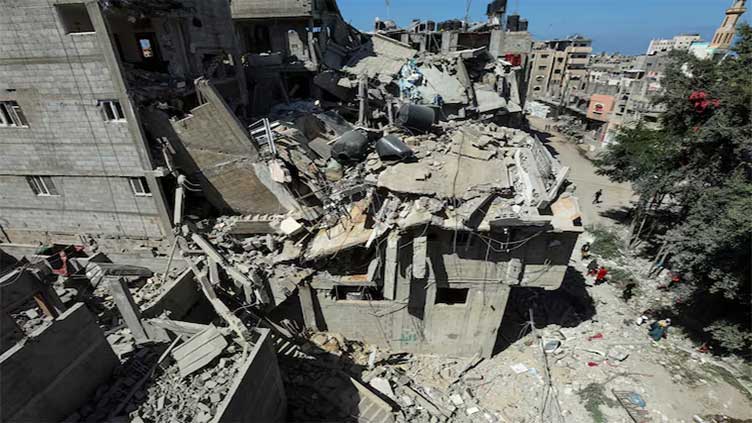US calls out Israel at UN for 'catastrophic conditions' in Gaza

World
"We call on Israel to take urgent steps to do so," US envoy Thomas-Greenfield said bluntly
UNITED NATIONS (Reuters) – Israel needs to address urgently "catastrophic conditions" among Palestinian civilians in the besieged Gaza Strip and stop "intensifying suffering" by limiting aid deliveries, its ally the United States told the UN Security Council on Wednesday.
Referring to reports of squalid conditions in south and central Gaza, US Ambassador to the UN Linda Thomas-Greenfield said: "These catastrophic conditions were predicted months ago, and yet, have still not been addressed. That must change, and now."
"We call on Israel to take urgent steps to do so," she said in a blunt statement.
The 15-member Security Council met over the humanitarian crisis a year after a deadly attack by Palestinian militants Hamas on southern Israel sparked the war in Gaza. Israel has since laid to waste much of the enclave and almost the entire population of 2.3 million has been displaced.
Israel says Hamas killed some 1,200 people on Oct. 7, 2023, while health authorities in Gaza say nearly 42,000 people have been killed so far during Israel's retaliation.
Thomas-Greenfield also addressed a recent Israeli order for civilians in Gaza's north to evacuate again, saying they must be able to return to communities to rebuild.
"There must be no demographic or territorial change in the Gaza Strip, including any actions that reduce the territory of Gaza," Thomas-Greenfield said.
Philippe Lazzarini, the head of the UN Palestinian refugee agency UNRWA, told the Security Council: "Hundreds of thousands of people are again being pushed to move to the south, where living conditions are intolerable.
"Yet again, Gazans are teetering on the edge of a man-made famine," he said.
'NO RESTRICTIONS'
The UN has long complained of obstacles to getting aid into Gaza and distributing it during the war.
Reuters reported last week that food supplies to Gaza have fallen sharply in recent weeks because Israeli authorities have introduced a new customs rule on some humanitarian aid and are separately scaling down deliveries organized by businesses.
"We need to see fewer barriers to the delivery of aid, not more of them," Thomas-Greenfield said.
Israel's UN Ambassador Danny Danon defended his country's record: "Israel imposes no restrictions on humanitarian aid. In fact, 82% of all requests for humanitarian coordination have been approved and implemented."
He accused Hamas of diverting aid from those in Gaza who need it.
Britain's UN Ambassador Barbara Woodward told the council that Israel "must do much more" to avoid civilian casualties and ensure the UN and aid groups can operate safely and effectively in Gaza.
"Delivery of humanitarian assistance is being hindered, and humanitarian workers are constantly under threat," French UN Ambassador Nicolas de Riviere said.
More than 300 humanitarian aid workers, most of them UNRWA staff, have been killed.


